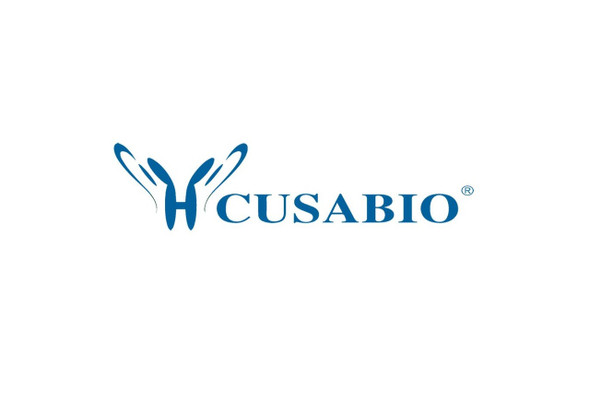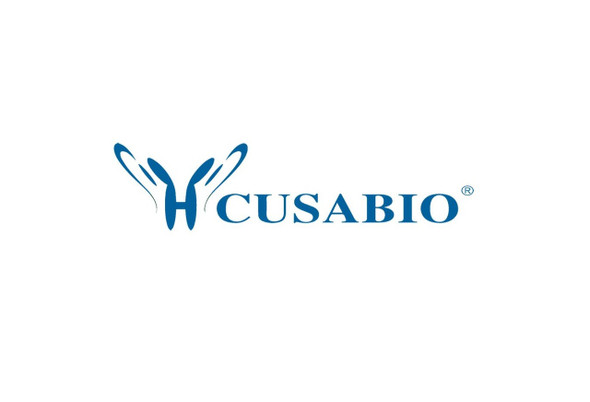Cusabio Human Recombinants
Recombinant Human Potassium channel subfamily K member 3 (KCNK3) | CSB-CF012071HU
- SKU:
- CSB-CF012071HU
- Availability:
- 3 - 7 Working Days
Description
Recombinant Human Potassium channel subfamily K member 3 (KCNK3) | CSB-CF012071HU | Cusabio
Alternative Name(s): Acid-sensitive potassium channel protein TASK-1 (TWIK-related acid-sensitive K(+) channel 1) (Two pore potassium channel KT3.1) (Two pore K(+) channel KT3.1) (TASK) (TASK1)
Gene Names: KCNK3
Research Areas: Others
Organism: Homo sapiens (Human)
AA Sequence: MKRQNVRTLALIVCTFTYLLVGAAVFDALESEPELIERQRLELRQQELRARYNLSQGGYEELERVVLRLKPHKAGVQWRFAGSFYFAITVITTIGYGHAAPSTDGGKVFCMFYALLGIPLTLVMFQSLGERINTLVRYLLHRAKKGLGMRRADVSMANMVLIGFFSCISTLCIGAAAFSHYEHWTFFQAYYYCFITLTTIGFGDYVALQKDQALQTQPQYVAFSFVYILTGLTVIGAFLNLVVLRFMTMNAEDEKRDAEHRALLTRNGQAGGGGGGGSAHTTDTASSTAAAGGGGFRNVYAEVLHFQSMCSCLWYKSREKLQYSIPMIIPRDLSTSDTCVEQSHSSPGGGGRYSDTPSRRCLCSGAPRSAISSVSTGLHSLSTFRGLMKRRSSV
Source: in vitro E.coli expression system
Tag Info: N-terminal 10xHis-tagged and C-terminal Myc-tagged
Expression Region: 1-394aa
Sequence Info: Full Length
MW: 50.5 kDa
Purity: Greater than 85% as determined by SDS-PAGE.
Relevance: pH-dependent, voltage-insensitive, background potassium channel protein. Rectification direction results from potassium ion concentration on either side of the membrane. Acts as an outward rectifier when external potassium concentration is low. When external potassium concentration is high, current is inward.
Reference: "TASK, a human background K+ channel to sense external pH variations near physiological pH." Duprat F., Lesage F., Fink M., Reyes R., Heurteaux C., Lazdunski M. EMBO J. 16:5464-5471(1997)
Storage: The shelf life is related to many factors, storage state, buffer ingredients, storage temperature and the stability of the protein itself. Generally, the shelf life of liquid form is 6 months at -20?/-80?. The shelf life of lyophilized form is 12 months at -20?/-80?.
Notes: Repeated freezing and thawing is not recommended. Store working aliquots at 4? for up to one week.
Function: pH-dependent, voltage-insensitive, background potassium channel protein. Rectification direction results from potassium ion concentration on either side of the membrane. Acts as an outward rectifier when external potassium concentration is low. When external potassium concentration is high, current is inward.
Involvement in disease: Pulmonary hypertension, primary, 4 (PPH4)
Subcellular Location: Cell membrane, Multi-pass membrane protein
Protein Families: Two pore domain potassium channel (TC 1.A.1.8) family
Tissue Specificity: Widespread expression in adult. Strongest expression in pancreas and placenta. Lower expression in brain, lung, prostate, heart, kidney, uterus, small intestine and colon.
Paythway:
Form: Liquid or Lyophilized powder
Buffer: If the delivery form is liquid, the default storage buffer is Tris/PBS-based buffer, 5%-50% glycerol. If the delivery form is lyophilized powder, the buffer before lyophilization is Tris/PBS-based buffer, 6% Trehalose, pH 8.0.
Reconstitution: We recommend that this vial be briefly centrifuged prior to opening to bring the contents to the bottom. Please reconstitute protein in deionized sterile water to a concentration of 0.1-1.0 mg/mL.We recommend to add 5-50% of glycerol (final concentration) and aliquot for long-term storage at -20?/-80?. Our default final concentration of glycerol is 50%. Customers could use it as reference.
Uniprot ID: O14649
HGNC Database Link: HGNC
UniGene Database Link: UniGene
KEGG Database Link: KEGG
STRING Database Link: STRING
OMIM Database Link: OMIM









